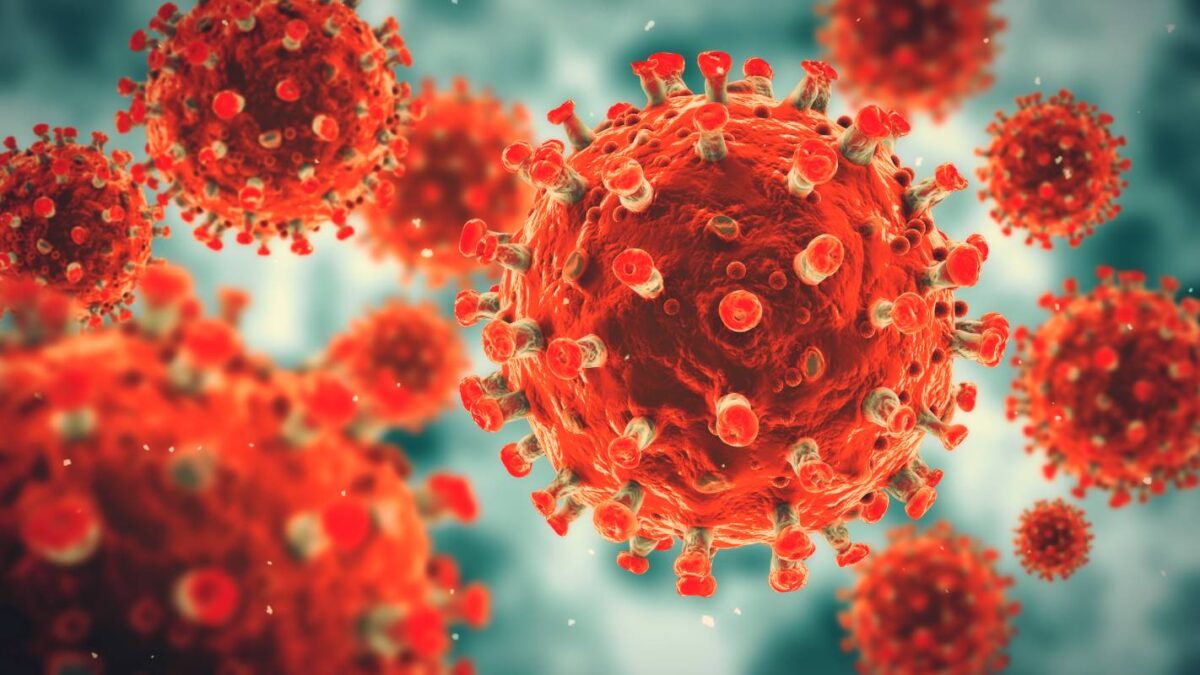Autoimmune Reaction With COVID-19

Over a year after the beginning of the COVID-19 pandemic, much remains to be elucidated about how the human body responds to the SARS-CoV-2 virus. Some individuals show no symptoms, others recover swiftly, and yet others suffer from a severe or even fatal symptoms. Autoantibodies, which have been found to erroneously target a body’s own tissues across a range of autoimmune diseases, such as lupus and rheumatoid arthritis, may explain some of the clinical heterogeneity seen in COVID-19.
One study of 147 hospitalized COVID-19 patients found that autoantibodies may account for a large proportion of serious or fatal COVID-19 cases 1. Researchers demonstrated that about half of patients hospitalized for COVID-19 harbored at least one type of autoantibody in their bloodstream. Among the study participants who had their blood drawn on more than one day, about 20% harbored no autoantibodies when they were first admitted but developed them over the course of their COVID-19 infection; in certain individuals, autoantibody levels were extremely high, mirroring levels characteristic of autoimmune diseases. In contrast, only 15% of healthy controls harbored such antibodies. Common targets of these antibodies included immune system proteins, such as the cytokines.
Recent research has also found that some severe cases of COVID-19 could be linked to problems with the important immune system protein required to ward off viral infections, type I interferon (IFN) 2-3. One study found that an X-linked recessive TLR7 deficiency disrupting IFN production could account for at least 1% of cases of life-threatening COVID-19 in men under 60 3. More commonly however, patients were found to harbor blood-borne IFN-targeting antibodies. In a large-scale international assessment of patients with severe COVID-19 alongside uninfected participants, researchers found that 10% of patients with COVID-19 pneumonia had high levels of autoantibodies to type I IFNs 2, while people with no or mild symptoms had very low levels of these autoantibodies. The likelihood of producing such autoantibodies increased with age: while less than 10% of individuals under 40 with severe COVID-19 harbored these autoantibodies in active form, over 20% of individuals over 80 had them.
Even very low levels of autoantibodies against IFNs can be clinically screened for. Assessing the presence of these autoantibodies may thus help predict disease progression, enabling appropriate preparations.
Following COVID-19, a small number of patients have developed a range of different autoimmune diseases, including Guillain-Barre syndrome 4,5. Autoimmune symptoms appear to be triggered alongside or immediately after respiratory symptoms.
To elucidate the link between COVID-19 and autoimmunity, prediction algorithms have been used to identify regions of SARS-CoV-2 proteins that antibodies may recognize and bind to, after which these were compared to all human proteins to search for potential similarities 6. Interestingly, many of the human proteins identified were already associated with a number of other diseases, such as multiple sclerosis, rheumatoid arthritis, and lupus, while others were associated with diseases of the cardiovascular and respiratory systems, as well as epilepsy – some of which have been identified as COVID-19 symptoms.
Much remains to be elucidated as regards autoimmune reactions due to COVID-19. Although inflammation is likely to play a role, the precise mechanisms triggering such autoantibody production remain unclear. Research will also need to dissect how these autoantibodies add to or exacerbate COVID-19 symptoms, including in the context of long COVID.
References
1. Chang, S. E. et al. New-onset IgG autoantibodies in hospitalized patients with COVID-19. Nat. Commun. (2021). doi:10.1038/s41467-021-25509-3
2. Bastard, P. et al. Autoantibodies against type I IFNs in patients with life-threatening COVID-19. Science (80-. ). (2020). doi:10.1126/science.abd4585
3. Asano, T. et al. X-linked recessive TLR7 deficiency in ~1% of men under 60 years old with life-threatening COVID-19. Sci. Immunol. (2021). doi:10.1126/sciimmunol.abl4348
4. Moody, R., Wilson, K., Flanagan, K. L., Jaworowski, A. & Plebanski, M. Adaptive immunity and the risk of autoreactivity in covid-19. International Journal of Molecular Sciences (2021). doi:10.3390/ijms22168965
5. Toscano, G. et al. Guillain–Barré Syndrome Associated with SARS-CoV-2. N. Engl. J. Med. (2020). doi:10.1056/nejmc2009191
6. Moody, R. et al. Predicted B Cell Epitopes Highlight the Potential for COVID-19 to Drive Self-Reactive Immunity. Front. Bioinforma. (2021). doi:10.3389/fbinf.2021.709533
7. Khamsi, R. Rogue antibodies could be driving severe COVID-19. Nature 590, 29–31 (2021). doi:10.1038/d41586-021-00149-1